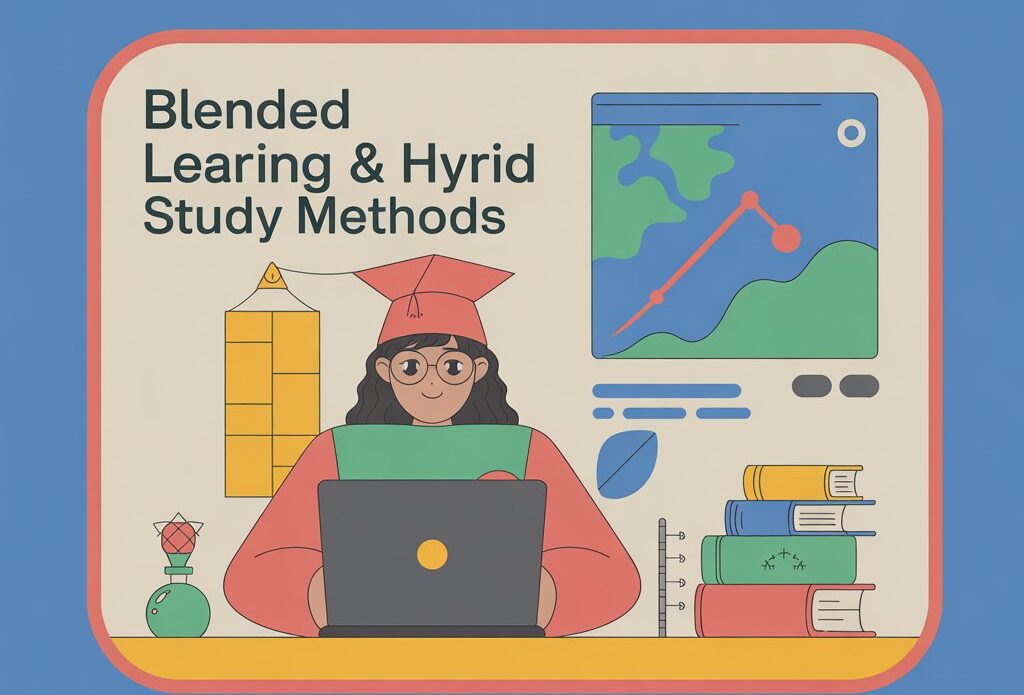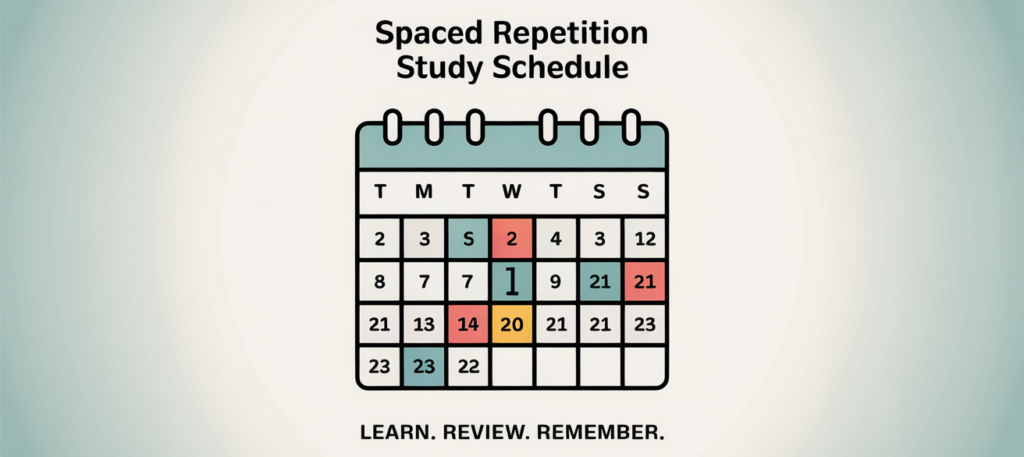Blended Learning & Hybrid Study Methods: Revolutionizing Education for the Digital Generation
Blended Learning & Hybrid Study Methods In the fast-evolving landscape of education, Blended Learning & Hybrid Study Methods have emerged as revolutionary models that merge traditional teaching with digital innovation. These methods allow students to experience the best of both worlds — face-to-face classroom interaction and flexible online learning. With NEP 2020 emphasizing technology integration and student-centered pedagogy, this learning model is shaping India’s classrooms into adaptive, inclusive, and future-ready spaces. Blended Learning & Hybrid Study Methods are especially important in the post-pandemic era where digital tools have become part of daily study. They ensure learning continues seamlessly — whether in physical classrooms, virtual setups, or through project-based learning. Let’s explore how this model is changing education for students across India. What Are Blended Learning & Hybrid Study Methods? Blended Learning combines in-person classroom teaching with online learning components. Students may attend school for direct instruction and use digital tools (like LMS platforms, videos, and simulations) to reinforce understanding. Hybrid Study Methods, on the other hand, offer flexibility — part of the class attends in person, while others join virtually. This system is ideal for remote learners or those with accessibility challenges. Together, Blended Learning & Hybrid Study Methods foster personalized, interactive, and engaging education that encourages active participation and deeper understanding. Key Features of Blended Learning & Hybrid Study Methods Flexible Learning Environment – Students can learn anytime, anywhere using devices or classroom resources. Technology Integration – AI, interactive apps, and e-learning platforms make lessons dynamic and adaptive. Student-Centered Pedagogy – The focus shifts from teacher-led to learner-driven education. Collaborative Learning – Students engage in group discussions, digital forums, and real-world projects. Data-Driven Evaluation – Teachers track progress through analytics, quizzes, and online assessments. Continuous Feedback – Instant digital feedback helps students identify strengths and weaknesses. Customization – Courses can be modified to match learning pace, style, and academic goals. Through these features, Blended Learning & Hybrid Study Methods ensure inclusivity, personalization, and 360° development for all learners. Benefits of Blended Learning & Hybrid Study Methods Let’s examine why this approach is transforming schools and student learning outcomes: 1. Enhanced Engagement Interactive digital tools like gamified quizzes, videos, and AR lessons make study sessions exciting. Students stay motivated and curious. 2. Personalized Pacing Every student learns differently. Blended Learning & Hybrid Study Methods allow learners to revisit topics, practice independently, and progress at their own pace. 3. Improved Accessibility Remote students, especially in rural areas, gain access to quality education through hybrid models supported by digital infrastructure. 4. Collaborative Learning Ecosystem Discussion boards, online peer sessions, and group tasks nurture teamwork and communication — essential 21st-century skills. 5. Continuous Learning Even during disruptions (like holidays or emergencies), learning never stops. This adaptability ensures educational continuity. 6. Empowered Teachers Educators use digital insights to tailor instruction, track performance, and reduce manual workload through automated grading. 7. Cost and Time Efficiency Digital resources minimize the need for printed material and long lectures, promoting eco-friendly and time-efficient education. Positive and Negative Impacts of Blended Learning & Hybrid Study Methods ✅ Positive Impacts Skill Development: Encourages critical thinking, problem-solving, and digital literacy. Holistic Growth: Combines social interaction with independent learning. Inclusivity: Students from various backgrounds can access equal learning opportunities. Innovative Pedagogy: Teachers adopt new creative tools like simulations, gamification, and virtual labs. ⚠️ Negative Impacts Digital Divide: Not all students have equal access to high-speed internet or smart devices. Screen Fatigue: Long hours of digital engagement can cause stress or eye strain. Teacher Training Gaps: Many educators need guidance to effectively use digital tools. Assessment Challenges: Evaluating practical skills online may be complex. Despite these challenges, Blended Learning & Hybrid Study Methods remain the most adaptive and future-ready model in modern education. Implementation Strategies for Schools To make the most of Blended Learning & Hybrid Study Methods, schools can follow these steps: Adopt a Learning Management System (LMS) like Google Classroom, Canvas, or Moodle for easy access. Provide Teacher Training in digital pedagogy, content creation, and AI integration. Create Digital Resource Hubs with videos, quizzes, and study materials for every subject. Encourage Flipped Classrooms where students watch lectures at home and engage in problem-solving during class. Collect Feedback from students and parents to continuously improve hybrid systems. Real-World Example Under NEP 2020, many Indian schools and higher institutions are piloting Blended Learning & Hybrid Study Methods. Initiatives like SWAYAM, DIKSHA, and NPTEL are helping students access open educational resources while attending regular classes. FAQs on Blended Learning & Hybrid Study Methods Q1. How is blended learning different from traditional learning?👉 Traditional learning is teacher-centric, while Blended Learning & Hybrid Study Methods combine digital tools and classroom teaching for flexibility and deeper engagement. Q2. Can younger students benefit from hybrid learning?👉 Yes. When guided properly, even primary students can benefit from digital storytelling, gamified quizzes, and interactive tools. Q3. What is the role of teachers in this system?👉 Teachers act as facilitators and mentors, guiding students in using online tools effectively while personalizing their learning journey. Q4. Is hybrid learning the future of education in India?👉 Absolutely. With increased digital literacy and affordable internet, Blended Learning & Hybrid Study Methods are expected to become mainstream in schools by 2030. ✳️ Key Takeaways Combines traditional and digital learning. Encourages student autonomy and engagement. Promotes equity, flexibility, and accessibility. Challenges include training and digital infrastructure. Aligned with India’s NEP 2020 vision of inclusive education. Final Thoughts Blended Learning & Hybrid Study Methods are not just educational trends — they represent a paradigm shift in how knowledge is delivered, experienced, and applied. By merging traditional classroom values with digital innovation, these models ensure inclusivity, flexibility, and personalized growth for every learner. As India advances toward a tech-integrated education system, Blended Learning & Hybrid Study Methods will play a crucial role in nurturing well-rounded, future-ready citizens.










